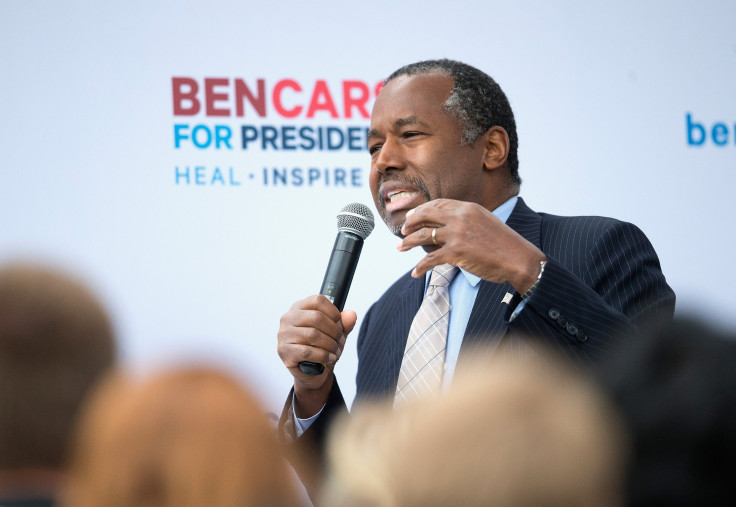Why Ben Carson, A Seventh-Day Adventist, Is Resonating With Evangelical Voters

Ben Carson has leapfrogged over Donald Trump to claim the top spot in the Republican presidential race -- and that lead is due in no small part to evangelical Christians in Iowa who are backing him over the billionaire reality star. (A recent Des Moines Register poll, which put Carson 9 percentage points ahead of Trump, also found a third of born-again Christian Republicans in the state favored Carson.) To some, it may seem like a strange marriage, given that Carson is a vocal and active member of the Seventh-day Adventist Church, a Protestant denomination that is sometimes at odds with Baptist and Catholic beliefs, but experts say the alignment is not seen as out of sync for many voters of faith.
"It's incorrect to assume that an evangelical will only vote for an evangelical," said Anthony Gill, a political science professor who studies issues of religion and politics at the University of Washington. “Evangelical voters are not one-dimensional. Religion is important, but more and more religious people are less concerned with denominational affiliation than they are with how deeply connected you are with your faith. It's the intensity of religious faith that matters more."
At a rally Saturday, Trump attempted to draw attention to Carson’s faith as a way of using his religious background against him. "I'm Presbyterian," he told the crowd. "Boy, that's down the middle of the road folks, in all fairness. I mean, Seventh-day Adventist, I don't know about. I just don't know about."
But that strategy isn't one that will resonate with evangelical voters, experts say. In fact, it's likely to backfire. Even though Carson differs in some of his religious beliefs, he's with evangelicals on the social issues important to them -- and he has a solid track record of sincere religious belief. That's something Trump can't exactly claim, no matter how much he tries to sell himself as a practicing Christian.
Key adventist beliefs include the idea the world was created literally in six days, and the Sabbath should be marked on Saturday, not Sunday. When Carson was invited to speak at a convention for Southern Baptists, he eventually backed out because pastors who opposed it said that Seventh-day Adventist theology "denies the doctrine of hell in favor of annihilation and believes that those who worship on Sunday will bear the 'mark of the beast.' "
More Alike Than Different
But theologians say most adventist beliefs do overlap with those of evangelical Christians, especially when it comes to hot-button issues like abortion and gay marriage.
"I think there's kind of a cultural difference and a residual suspicion because they worship on Saturday rather than Sunday," Randall Balmer, a professor of religion at Dartmouth College, told NPR. "My observation is that Seventh-day Adventists are looked [at] askance to some degree. It's not because of anything heretical in what they believe, but it's just kind of a cultural difference."
It also helps that Carson is staunchly anti-abortion, an issue about which evangelical voters care deeply. Carson said he would love to see Roe v. Wade overturned in an interview on NBC's "Meet the Press" Sunday, adding he is "a reasonable person and if people can come up with a reasonable explanation of why they would like to kill a baby I would listen."
Carson has also spoken out against gay marriage and has highlighted the importance of religious liberty -- an issue, Gill said, that is going to play an important role in the upcoming election. Upon the Supreme Court ruling on gay marriage, Carson called on Congress "to make sure deeply held religious views are respected and protected."
"The government must never force Christians to violate their religious beliefs," he said.
"He's a Seventh-day Adventist, but he shares a number of positions on moral issues that evangelicals do," Gill said. "So it's easy to overlook denominational differences they may have."
© Copyright IBTimes 2025. All rights reserved.





















